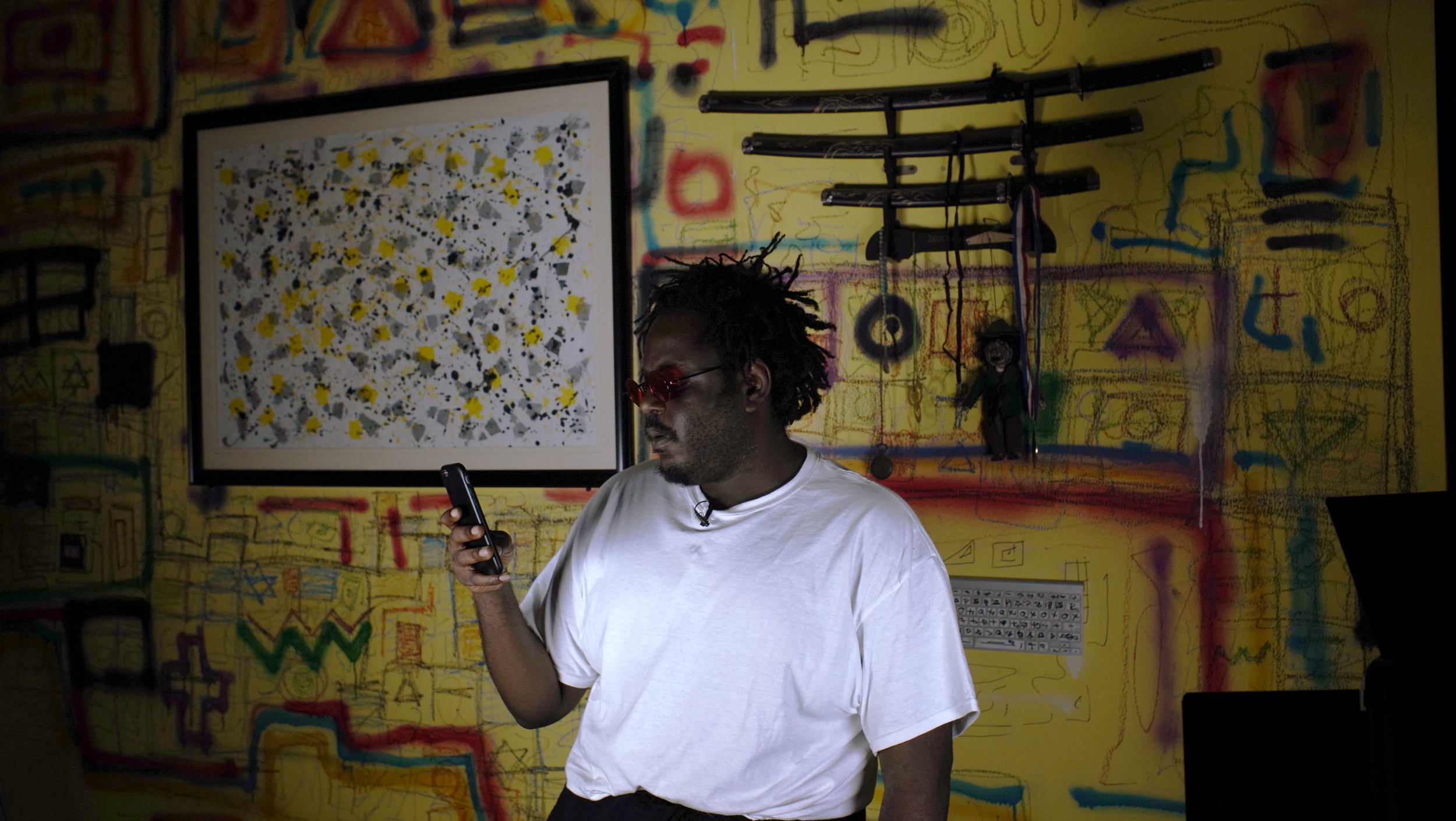ARTISH Presents: Scene by Scene with Abba Makama
Words: Debola Abimbolu
Videography: Danjaji A.I, Toye Sokunbi.
Creative Direction: Danjaji A.I + Shina Ladipo
Location: Whitespace
Production: ARTISH
Upon waking from a lucid dream, a security guard discovers he has been possessed by the spirit of his ancestors. He’s now a masquerade with the power of telekinesis, teleportation and dazzling dance moves. Naturally, these powers come with new responsibilities as he has to endure awkward public transport rides, fight off gang members, rescue people in distress and ultimately restore hope to his community.
This fits the origin story for any superhero flick right? But this isn’t an Hollywood blockbuster; the movie is “The Lost Okoroshi”, a film by Abba Makama, set in present-day Lagos, Nigeria. “The Lost Okoroshi” was released last year as Abba Makama’s second feature length movie, after his 2016 debut, “Green White Green”, but it recently joined the league of Nigerian movies streaming on Netflix’s international streaming service.
Though the film had gotten acclaim through its feature at international film festivals like TIFF and enjoyed fanfare from Nigerian viewers when it debuted on Netflix last month, it’s outrageously different from what we’ve come to know as “modern” Nollywood. The surrealist narrative, eclectic visuals and soundtrack, push “The Lost Okoroshi” into art film territories. Through his homage to our indeginous tradition, “The Lost Okoroshi” is set in a gritty present-day context that’s honest, relatable and utterly spellbinding enough to be a cult classic.
“There’s this view that eurocentric ideas are better” Makama says. He believes Africans shouldn’t be embrassed to tell our story without any filters to be more accesible to a global audience. “Alot of Nigerian films try to take formulas used for Hollywood films and expect these films to be appreciated abroad. But I can’t sell the hybrid version of something to who owns the original”, he adds.
Abba was born in Jos but he only discovered his passion for filmmaking after he left his university in Nigeria to study in New York. He got exposed to classic films like “Reservoir Dogs”, “The Godfather” and “Good Will Hunting” and he eventually decided to become a filmmaker when he realized he was more interested in discussing music and film with art students than conversing with his business course mates. But despite his western influences, Abba has consistently reflected his Nigerian identity in his works which his largely international audiences appreciate.
Makama is not concerned about how his preference for themes infused traditional African beliefs may be miscotrued by Nigeria’s hyper religous society. “A lot of people (here in Nigeria) consider what I’m doing fetish or jazz. And even if it is, why not? It’s your tradition. Christianity is also another form of juju itself. It’s just oyinbo juju that you’ve now taken and made it superior. There’s a saying that ‘they say your grandmama na winsh, but she’s still your grandmama’ and you must face that reality” Makama says.
For his ARTISH Presents interview, we caught up with Abba Makama at his home in Lagos which also serves as a studio for his paintings and sculpture designs. There are several masks mounted on the walls as well as wall scribblings that highlight his different forms of artistic expressions. And while his apartment is a revetting memorabilia of his greatest influences, it was nothing compared to the immersive experience he set up at his art installation in White Space, Ikoyi; ‘Dodorowski’s Artefacts From Our Future Past’, featuring vibrant illustrations, surreal paintings and haunting models. Ladies and gentlemen, ARTISH presents Abba Makama.



